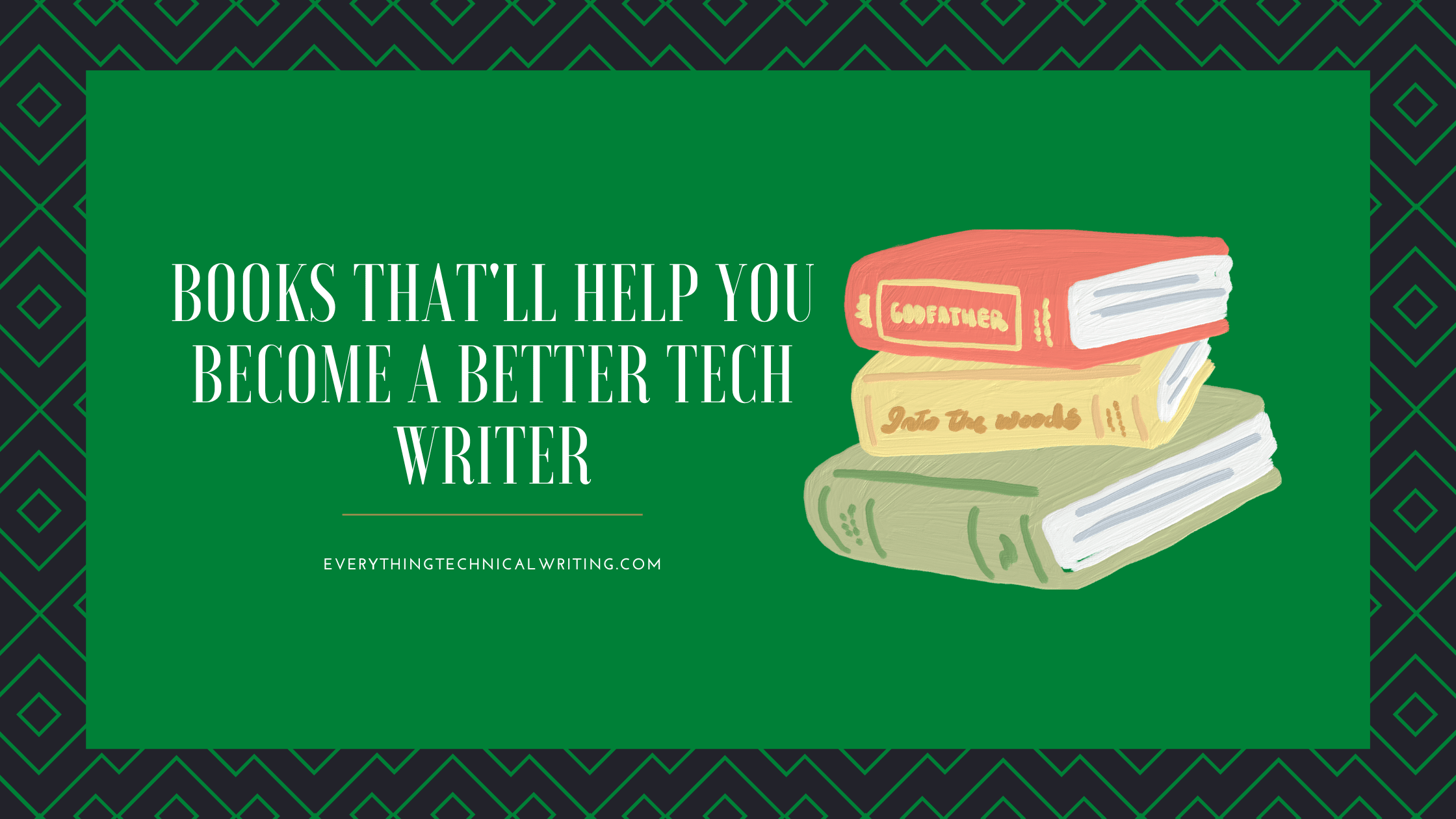
In a previous tech content creator interview with Elisa Sawyer, a documentation engineer, she said something: "It's common for technical writers to continue to improve their technical knowledge and skills. Paradoxically, it's less common for technical writers to continue to reach for advanced writing skills…….."
Many people believe that exceptional writing is an inborn talent; if you got it, you got it. If you don't, then you don't. As a result, most technical writers spend time learning technologies related to their craft but forget to take time to train their writing muscles. But that should not be the case.
Writing, like every other skill, can be developed. You can certainly take your writing skills from tolerable to advanced by consciously honing your writing skills. One thing that has helped me acquire better writing skills has been reading books related to the art of writing. So, today, I want to share 3 books that I've read that have impacted my technical writing abilities. P.S they're not all technical writing books, but I learned valuable tips.
Everybody Writes by Ann Hadley
Although primarily written from a content marketing point of view, I believe 'Everybody Writes' is a book every writer should read regardless of their niche. The tips shared in this book show you how to take your writing from basic to excellent.
This book covers how some blueprints for better writing and thinking, grammar rules, and tools to help you choose better words and craft better paragraphs. It is a how-to, hands-on book offering practical steps.
As Ann says, "we're all capable of producing good writing, or at least better writing, because writing well is part habit, part knowledge of some fundamental rules, and part giving a damn".
Docs for Developers
The authors of this book (5 of whom are very experienced and well-accomplished technical writers) sub-named this book 'A field guide to technical writing', and I think it lives up to that name. I first read this book when I started to foray into the world of technical documentation. This book features tips on how to write good tech docs. From understanding users' needs to publishing, measuring, and maintaining helpful developer documentation, this book demystifies the process of creating great developer documentation.
They Ask, You Answer by Marcus Sheridan
This book is mainly about content marketing. However, I learned a lot about content strategy and how to leverage written content as a strategy for brand growth, which is a valuable skill for technical writers and every tech content creator, in general, to have. The book centers on the idea that education and help is the place your content should come from. It teaches you how to create content your target audience wants to know and is curious about — content they'll love and engage with.
Conclusion
Reading, not just reading books, is a sure way to become a better writer. As my friend Tami says, "you have to read as much as you write". It could be reading articles, documentation, or white papers from your favourite tech writers or even fiction (in my case). When you read, read with the intent to improve your craft and observe how others write.
There are techniques, rules, and best practices for technical writing and writing in general. Reading helps you uncover those. Reading allows you to discover new grammar, expand your vocabulary, discover new writing styles/word choice strategies, and derive new ideas.
Do you have any book(s) that have impacted your writing skills? I'd love to hear them. Share with me @mslinda on Twitter.

